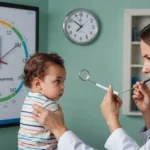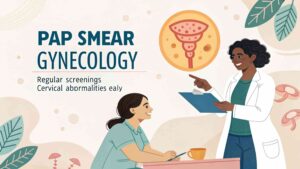Navigating the path to parenthood can sometimes present challenges. When conception does not occur as planned, it can be beneficial to seek specialized medical guidance. Here is more information on fertility specialists, the services they provide, and an overview of reproductive disorders that may affect fertility:
What Is a Fertility Specialist?
A fertility specialist is a medical doctor with advanced training in reproductive endocrinology and infertility. These physicians focus on diagnosing and treating conditions that affect a person’s ability to conceive. They possess a deep understanding of the complex factors involved in reproduction for both males and females. Their expertise encompasses hormonal imbalances, anatomical issues, and genetic factors that can affect conception.
What Services Do They Offer?
Fertility specialists offer a comprehensive range of services to diagnose and treat infertility. The process typically begins with a thorough evaluation, which includes a detailed medical history, physical examinations, and diagnostic testing. These tests may involve blood work to check hormone levels, semen analysis for men, and imaging studies like ultrasounds for women.
Based on the diagnosis, a specialist will develop a personalized treatment plan. This plan may include fertility medications to stimulate ovulation or assisted reproductive technologies (ART). Common ART procedures are:
- Intrauterine Insemination (IUI): This procedure involves placing specially prepared sperm directly into the uterus during ovulation.
- In Vitro Fertilization (IVF): This process involves fertilizing an egg with sperm in a laboratory and then transferring the resulting embryo into the uterus.
What Are Reproductive Disorders?
Reproductive disorders are conditions that affect the male or female reproductive systems, often leading to infertility. These disorders can be present from birth, develop over time, or result from other medical conditions. They can interfere with the normal functions required for conception, such as ovulation, sperm production, or fertilization.
For women, common reproductive disorders include polycystic ovary syndrome (PCOS), endometriosis, and uterine fibroids. For men, issues can involve low sperm count, poor sperm motility, or blockages in the reproductive tract. Both men and women can be affected by hormonal imbalances or genetic conditions that impact fertility.
What Are the Causes and Symptoms?
The causes of reproductive disorders are varied. They can stem from genetic predispositions, hormonal fluctuations, structural abnormalities, infections, or lifestyle factors. The specific cause of infertility may remain unexplained even after a thorough evaluation for some couples.
Symptoms differ depending on the specific disorder. Women may experience irregular menstrual cycles, pelvic pain, or abnormal bleeding. Men may not have noticeable symptoms other than the inability to conceive a child. A fertility specialist can conduct the necessary evaluations to identify the underlying cause.
How Are Reproductive Disorders Managed?
Management of reproductive disorders is tailored to the individual’s specific condition, age, and overall health. The goal is to address the underlying cause of infertility and improve the chances of a successful pregnancy. Treatment options range from lifestyle modifications to assisted reproductive technologies.
For hormonal imbalances, medications can help restore balance. Some medications regulate menstrual cycles, and others stimulate egg production. When these methods are not successful, or if there is a different underlying issue, procedures like IUI or IVF may be recommended to assist with conception.
Treat Infertility Now
Understanding the roles of fertility specialists and the nature of reproductive disorders is a foundational step for those facing fertility challenges. These medical experts provide diagnostic services and a wide range of treatment options designed to address various causes of infertility. From medication and lifestyle changes to advanced techniques like IUI and IVF, there are multiple paths to explore.















